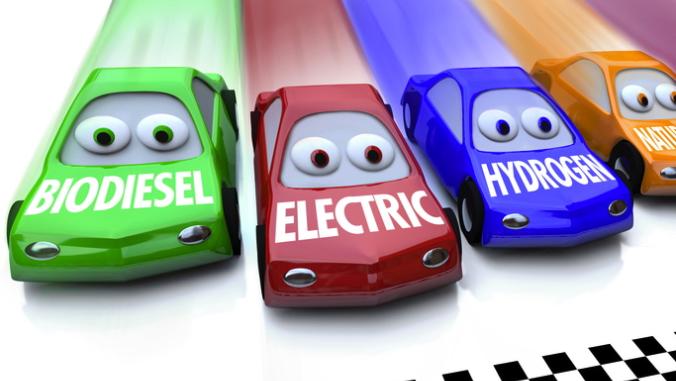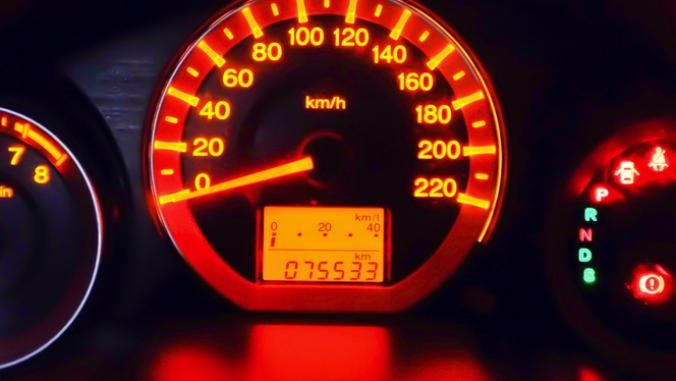Google, BT, Ikea Urge EU to Set Tougher Carbon Goals
<p>Seventy-two companies are calling for deeper carbon cuts in the EU, while a separate report questions whether U.K. companies are ready to tackle their own carbon footprints.</p>

It's a common stereotype that businesses always push for fewer regulations, not more, but a large group of big-name companies is breaking that mold by calling for the EU to adopt more stringent climate change goals. The move comes even as a separate report concludes that nearly half of the U.K.'s largest companies lack targets to reduce their own CO2 emissions.
More than 70 companies, including big names like BT, Ikea, Google, National Grid, Philips, Puma, Swiss Re and Unilever, signed a joint declaration (PDF) urging the European Union to reduce its CO2 emissions by 30 percent below 1990 levels by 2020. That's a much higher target than the 27-nation bloc's existing goal of a 20 percent reduction.
The companies claim such an aggressive target would spur investment, jump start the transition to a low-carbon economy and improve energy security, creating millions of new jobs in the process. The cuts would be much easier and cheaper to achieve because of the economic downturn, the companies said, but achieving the goal would still require appropriate market incentives.
"Renewable energy at competitive prices is a prerequisite for a clean and reliable European energy supply," Anders Eldrup, CEO of DONG Energy, said in a statement. "But the current framework does not properly incentivize renewable energy. While the energy sector strives to drive down the cost of renewable energy production through R&D, and while fossil fuel prices increase, we still need for European regulators and policy makers to ensure that the price of CO2 is properly reflected in the market. This calls for a move to 30 percent emissions reduction by 2020."
Seven countries -- Denmark, France, Germany, Greece, Portugal, Sweden and the U.K. -- have all voiced support for a 30 percent CO2 reduction target, but other member nations are resisting, including coal-dependent countries such as Poland. The EU has previously said it would increase its 2020 climate target to 30 percent if other developed countries outside the EU followed suit.
That hasn't happened. Under the Copenhagen Accord, President Barack Obama committed the U.S. to a 17 percent decline in GHG emissions by 2020, but that's from a less stringent 2005 baseline, which translates to a reduction of less than 4 percent below 1990 levels.
The other elephant in the room -- China, now the world's top emitter -- has refused absolute emissions cuts in favor of an intensity-based goal of 40-45 percent.
How quickly a 30 percent emissions reduction target would spur action in the EU remains to be seen.
The U.K. has one of the world's most aggressive 2020 climate goals, aiming for a 34-42 percent cut below 1990 levels. It just recently committed to halving its 1990 emissions levels by 2025. Those goals may falter in the face of the reality of a report released today. In "Raising the Bar -- Building Sustainable Business Value Through Environmental Targets," the Carbon Trust finds that 41 percent of the U.K.'s top 100 companies lacked a clear, robust CO2 reduction target. The flip side, of course, is that about 6 in 10 FTSE 100 companies do have plans in place and are seeing the benefits, such as brand enhancement and increased business value.
GE, for example, generated $18 billion in revenue in 2009 from its Ecomagination products and services and plans to accelerate this category's growth. Siemens, meanwhile, has plans to grow its environment portfolio to €40 billion in revenue by 2014.
Others are finding great success in reducing their carbon footprints. Unilever, for instance, just announced that it has achieved a 44 percent reduction in CO2 from energy per tonne of production by its factories from 1995–2010. The company wants to halve the GHG lifecycle impacts of its products by 2020, on a "per consumer use" basis and relative to a 2008 baseline.
"We are playing to win here and we are being very positive," Unilever commented in the report. "We believe we can grow faster and save money by pursuing this agenda."





